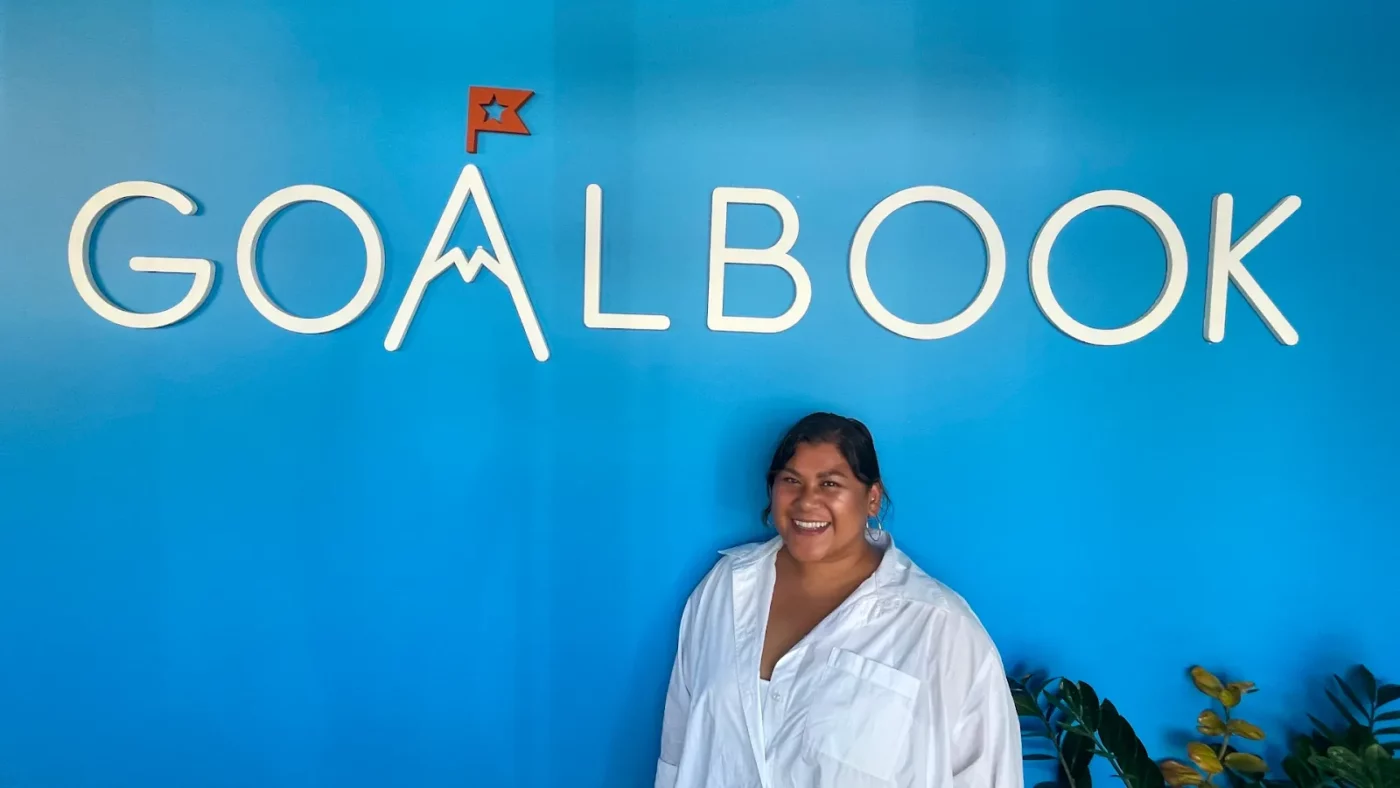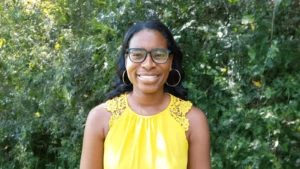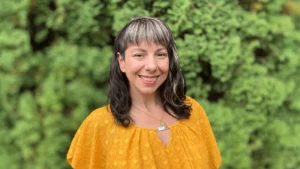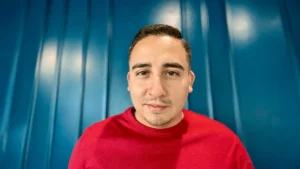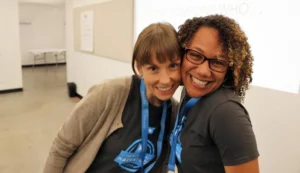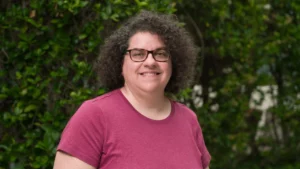After graduating from college and working in a couple of different corporate settings, “I realized I didn’t want to do a corporate ladder career,” said Christina. “It wasn’t really for me; I didn’t find it very satisfying.”
Christina was very intentional in looking for a company that has a purpose when she began looking for her next career move. She had already seen and experienced what it was like when tech companies in the Bay Area went public, and Christina didn’t want to continue in that type of environment. She wanted to pick a group of people — not just a company, but a group of people — and an overall feeling that there was more to a work conversation than a fixation solely on sales.
When speaking with Christina, it became clearer that her job search is not the only thing in life she approaches with intentionality. On a daily basis, she looks for opportunities to find intentionality in unintentional interactions and circumstances. In this Q&A, Christina shares how she applies this intentionality in her role on the Operations team to help advance Goalbook’s mission forward.
1. How did you hear about Goalbook and what made you want to work in EdTech?
I grew up in a not-so-great neighborhood, and while going to school, I was very aware of my socioeconomic status and of those who I went to school with. For whatever reason, that always stuck with me. As I got older and had more in-depth conversations with people in college from different cities, states, and backgrounds, I was exposed to how different people are and what privileges they get. Some of these conversations made me curious about the world and how it is.
As I was searching for jobs, I was looking for a company that was doing something productive and where I would feel very motivated to do the work. I came across the Goalbook opening on LinkedIn, and the job description aligned with what I can do. I did more research on Goalbook, making sure I understood what the company does, and it made me more curious.
When I read about Goalbook, it brought me back to growing up and being aware of my socioeconomic status at school. There were not a lot of resources available for teachers, and it made me wonder what could have been if teachers had more specific resources like Goalbook Toolkit.
2. What attracted you to Goalbook’s mission?
When I was in college, I was a little lost about picking a career and what that process looked like, so I took a lot of different classes. I took a marketing class, and as part of the course, I read a book called The Element by Sir Ken Robinson. I still remember it to this day.
When I was reading and learning about Goalbook, that book really came to mind because it deeply touches on the fact that we tried to make circles and all different shapes fit into squares with education. Sir Robinson gave great examples of very successful people, but they were all “different.” His message is that everyone has differences, and we need to embrace and adapt to those differences for a person to grow into their best selves. Another way to put it is that the standard education system is square, but we are all circles, triangles, and stars trying to fit into a square.
The more I learned about Goalbook and Goalbook Toolkit, it seemed like it was a resource that helps people who are all different shapes fit into the square that is education and succeed in that system. I thought it was just great. I knew I had the required skill set for the job, and I knew I could try and help this company really succeed at its mission, in whatever capacity.
3. In your eyes, how does your work support Goalbook’s mission?
The work I do helps support our departments to be successful at improving Goalbook Toolkit and reaching more school districts and teachers. The business operations, which includes the Partnerships and Customer Success teams, can’t optimally do what they do without our pieces. And that’s just getting in front of our partners.
But there’s also the backend piece, like setting up accounts and payments for engineering tools and platforms; assisting the Business team with conferences, travel, and tools needed to prepare for meetings with partners; and managing the details that go into keeping the business requirements up to date and running smoothly.
Operations are so important for a company’s longevity. If someone reaches out and says, “I need this,” and I don’t provide it or make a payment for it, it can hinder everyone’s part in the mission. My role is supporting those who have a more direct impact on the mission and not holding anything up so that the mission can go forward.
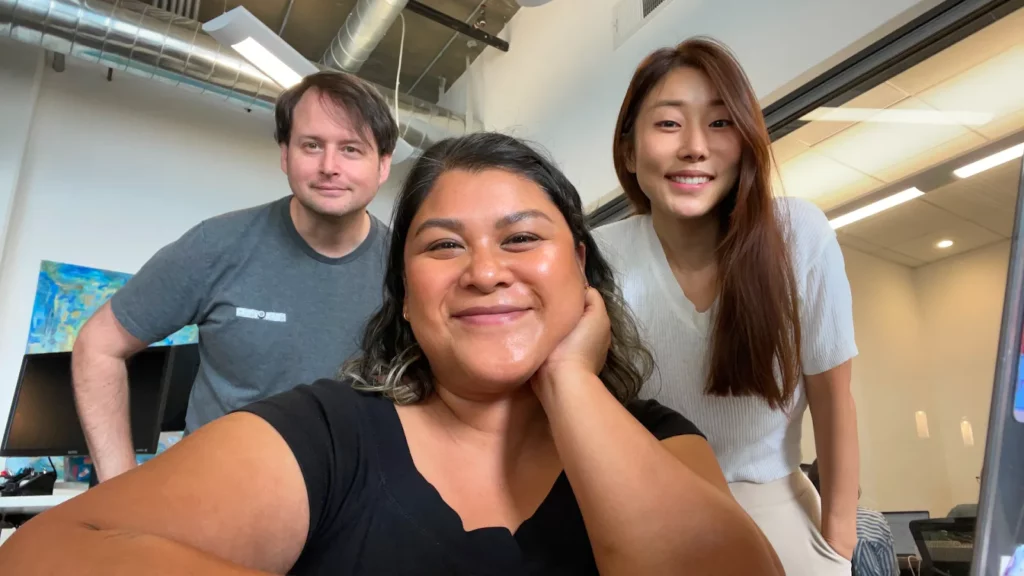
“What I do is try to make intentional opportunities out of unintentional interactions.”
4. Tell us more about your role and what your favorite parts are.
I have the chance and opportunity to really interact with all departments, even if they’re small interactions. I have unintentional interactions. For example, a conversation may come up about a payment method at the moment it’s needed. I’m not sure every department will have that kind of conversation, and that’s what makes it unintentional. But what I do is try to make intentional opportunities out of those unintentional interactions.
My favorite part is the fact that I get to interact with people, but then I also get to work with those people to solve a problem, whether it’s big or small. I live by observation and interaction, so I love those moments in operations when I can learn and understand how other people see things or think their way through problems. To me, it’s very special because I have my hands on everything.
“I’ve never worked at a company where it’s so strongly felt that there is one goal.”
5. What are one or two things you love here?
I’ve never worked at a company where it’s so strongly felt that there is one goal. But at the same time, I was very intentional in trying to find a company like this. Every day that I’m here, it’s pretty reassuring that I worked hard, did my best, and I landed where I needed to land.
One of my favorite things is that every conversation we have as a team always circles around wanting to make our product better, but with keeping our partners in mind, especially educators. We can do conferences and marketing, we can hire all these people, but at the end of the day, I think it’s great that we always want to check in with the educators and our partners.
We’re singularly focused; it’s not all about a department goal or a goal for an individual’s career growth. Daniel (our co-founder) and Sofia (Head of DEIA) often talk about our singular direction from a company perspective, but because of my position, I can see all the parts come together, and it’s a great thing to see.
I love the approach from our co-founders Daniel and Justin. They have ingrained that we need to be really responsible, especially on the finance side. Having worked at startups before and seeing how business decisions are made, I love that Goalbook, specifically the founders, have made it a point to strive to be a different type of company.
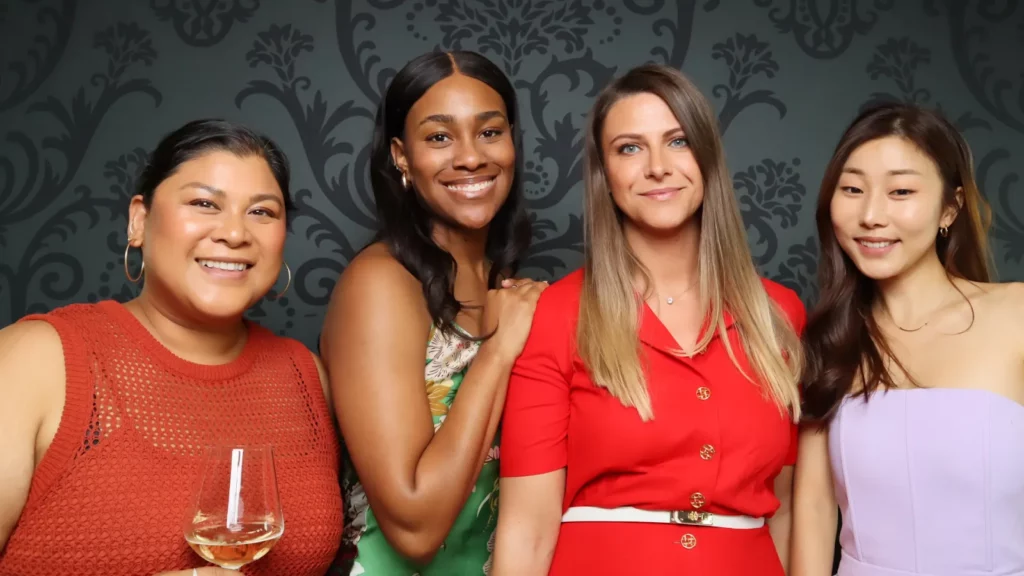
“Adaptability and acknowledging perspectives are key to being successful.”
6. What have you learned in your role so far?
Adaptability and acknowledging perspectives are key to being successful. I don’t get stressed out at work. There is workload and work to be done, but I think the stress comes from how much you care and your perspective. For example, you can care a lot about the workload, but there’s only eight to ten hours of a working day. There has to be a balance, and you can only fit so much in those hours. After that, what do you do — do you stress about something that is out of your control? Time is time. You can just try to be productive and efficient. You can try to work with your colleagues to make a bigger impact in a shorter time frame. And that’s why acknowledging perspectives is very important because you can move faster.
This is what I’ve learned the most in this world, but also in the growth of my career. I think that’s a reason why I feel successful in this role because I’ve grown into learning that acknowledging other perspectives is important.
7. What’s your favorite memory during your time at Goalbook?
We have a new Head of Operations, and the Operations team has grown, so the team week in January 2024 was the first for many people. We wanted to do a team-building event where we would get to know each other. Our team activity was making candles, and we all had fun, but that wasn’t the core of it.
In the back room of the space, they had Jenga. So, after making candles, we all slowly trickled into the room and all started playing Jenga. Each Jenga block had a question. And it wasn’t the fact that we were answering the question, but we constantly had so much banter and interrupted one another that we would just laugh.
We saw everyone’s personality. With some of us knowing each other longer than others, it was nice to see the vulnerability of newer team members or from others who don’t talk very often. We were just joking around and laughing. We were crying-laughing and couldn’t-breathe-laughing. We almost missed our dinner reservation because of it. We were having such a good time to the point that no one really wanted to say that we had to leave for dinner.
It was fun not to talk about work and that it was not our intentional activity. It happened organically; it was unintentionally intentional, and it was great.
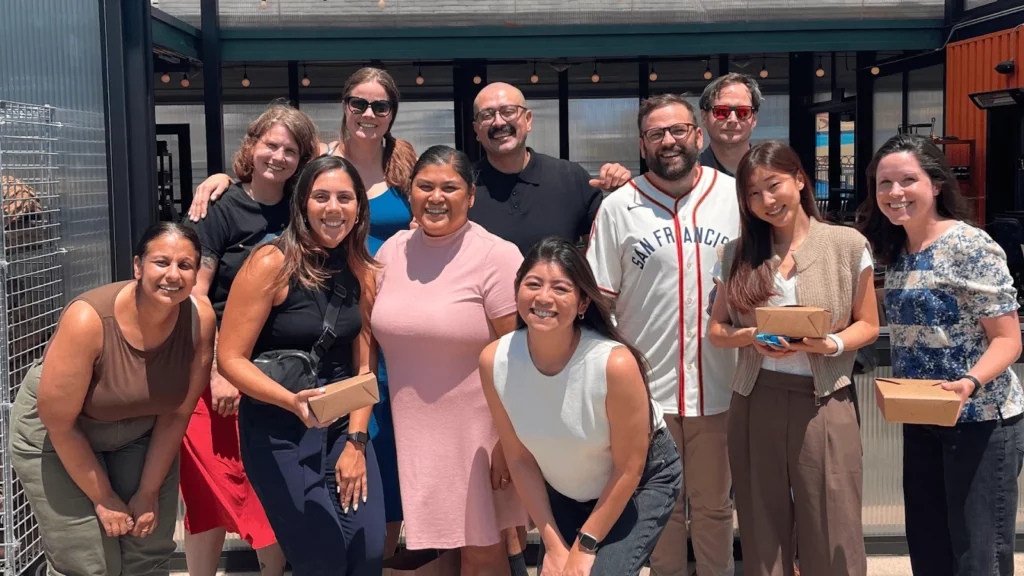
8. What are you watching/reading/listening to right now?
Watching: 3 Body Problem on Netflix. My cousin watched it and told me I should watch it. It has a slow start, but then I was like, “Oh, this is interesting.”
Listening to: I’m a big fan of BTS. That’s always running on the playlist in my car. I like their songs and their melodies. They’re just good and nice to listen to.
I’m a big fan of hip-hop and R&B, but the current music on the radio is hit or miss for me, so I just play certain things in the background.
Reading: I don’t really read that much. I’ll read, and I do enjoy books. But the urge to read is not there.
I love documentaries, though. And TED Talks. I like listening or watching and absorbing information that way.
